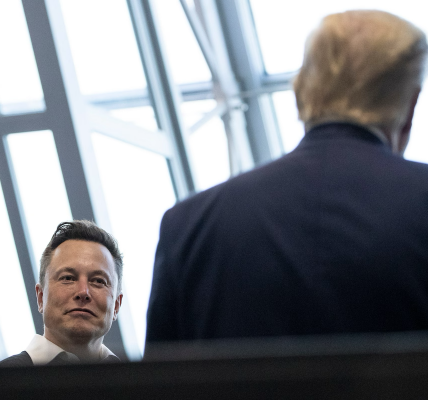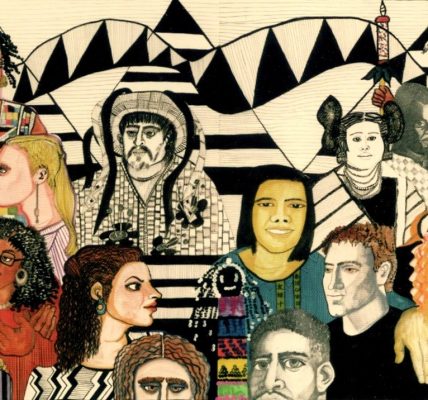Social Media &Türkiye
A Moral Exemplar or A Capricious Intimidator? Social Media & Türkiye
“This is censorship, pure and simple.” Thus Head of the Communications of the Republic of Türkiye (BTK), Fahrettin Altun pointed out in a tweet condemning Instagram’s recent censorious actions, which was posted just two days before an access ban was placed upon Instagram within Türkiye. In the following days; communications department officials exclaimed that it was several of the unresolved regulatory and legal “complications” – faced with the Instagram parent company META Platforms – which were involved in the placing of the ban that brought about the current predicament (Anadolu Ajansı, 2024) while politicians of the opposition and quite a remarkable percentage of the public itself – especially when we take into account the number of Turkish users of Instagram – were outraged at the outcome of this arbitrary “punishment” and, most ironically, “censure” that the Turkish bureaucracy has inflicted on the freedom of the social media platform.
However, the situation itself and the surge in retaliations and reactions invites questions concerning this discord between the digital intermediates and the state bureaucracy: Considering the contemporary dispute regarding the notion of “Media Freedom”, is Türkiye perhaps a moral exemplar that seeks to establish a regime of respect and regulation over the social media intermediaries like Instagram? – or considering the controversy of social media “policies” inflicted by Türkiye (the most recent memorably being the Youtube access ban placed for almost two years between the years 2012 to 2014) in the form of regulation to “loose” platforms, is Türkiye instead playing at large the role of a capricious intimidator?
A Contemporary Case Study:
When such questions are concerned, what can be employed to provide a possible answer is to utilize both theoretical approaches to the problem at hand and as well as apply actual state policies to analyze the nature of such a complicated situation – because Türkiye’s current deadlock with Instagram entangles within itself two important issues that actually bedevils the world and its social media terrain: Media freedom and ethical standings of social media regulations in the name of responsibility – especially when the concerned regulators are states with autocratic leanings.
Media Freedom – But With Conditions?
One side of the issue, or namely the behavior permeating the digital domain of Instagram can be explained through what is called a theory of “Media Freedom”. Media freedom concerns itself with the question of what the entities considered as “media” are free to do, and free from what kind of circumstances – such as either liabilities granted and/or responsibilities distinguishedly relieved from. In the most general sense, the theory seeks to explain what degree and until when media entities enjoy an “autonomy” of their own jurisdiction outside the state – and in several other contemporary discussions – as well as individual power (Tambini, A Theory of Media Freedom, 2021)..However, the autonomy the “social” media intermediaries may enjoy is also quite entrenched in several concerns directed at this freedom – the problem of whether that in proportion to this autonomy, are the social media intermediaries also imbued with (or moreso compelled to) certain obligations and accountability?
Here, aside from the “autonomy” question; issues of “obligations”, “accountability” and even “responsibility” present themselves because although we talk of a kind of freedom the media can relish, there is also the fact that a presence of the “freedom of expression” itself is implicated within this distinct status. And with the current situation, since the discourse concerns what the state officials perceive as violations of freedom of expression and speech in the form of “non-regulation of hate speech and/or restrictions placed upon the opinions of certain users” (Anadolu Ajansı, 2024), then, which one of these two freedoms is more significant? – and what would an answer imply to all parties and entities involved?
Itt would be most critical to point out that while freedom of expression and speech are fundamental human rights, media freedom is perceived as a “conditional right” (Tambini, 2021) and if anything, it is also more akin to a “role” (Tambini, 2021) than a complete privilege. Therefore, if we consider that this role of “autonomy of jurisdiction” is conditionally bound to the eminence of the significance of freedom of expression and speech within these digital domains – it is rationalistic to claim that social media intermediaries must also assume proportional responsibility towards the public which forms its user base and be aware that they may also be tasked with accountable to “ethical duties and principles” (Johnson, 2017) that concerns the good of the public welfare.
However, if now we have begun to talk about the centrality of public welfare in dictating which direction principles of autonomy should follow hand in hand with those of ethical imperatives, it is inevitable that an intrusion of the existence of a state over this same public (which also presides over its welfare) will enter the frame: Because if it becomes apparent that the social media intermediaries have not constituted or are not following any kind of relevant regimes in line with respecting and protecting the public (Abbasi, 2015), then states will be entering the field with certain legal (and national as much as it concerns their own public) regulations that will also compel them to be accountable to the state vis a vis this public as well. Yet, no matter how justified it might be seen as behaving when taking action in ensuring the protection of its populace within the world of digital media, does this justification extend to making the autonomy of social media responsible and accountable to itself in the process – especially when means of force such as restrictions are employed to achieve these ends just as well?
Now, considering the fact that we have pointed out to how social media intermediaries should incline towards more ethically driven approaches to media freedom principles in regards to being accountable to certain rights of any kind of public, is Türkiye perhaps the moral exemplar in wanting to achieve similar status of accepted obligations towards its own public (that the META have established to a certain degree with the US and the EU states) – or is a serious issue permeating Türkiye’s behavior in the way it exacts its retaliatory policies for the sake of this morality that instead seems to point out to a deeply unsettling question: Is Türkiye a capricious intimidator instead?
In The Name of The Public: Türkiye’s Social Media Policies and Its Autocratic Deviations
Capricious is quite a strong label here but it is used with good reasoning: Behind the questionings surrounding the restriction is the justification put forward by the spokespersons or officials of the bureaucracy (BTK, Ministry of Transport and Communications as well as several Turkish news agencies) stating that the Instagram platform of the parent META company has “refused to” comply with the national regulations set down by Türkiye – namely the Regulation of Internet Broadcasts and Prevention of Crimes Committed through Such Broadcasts, which was last amended in 2022 (Law No. 5651 on Regulating Broadcasting in the Internet and Fighting Against Crimes Committed through Internet Broadcasting, Türkiye, 21). Under these new set of regulations, “social network providers with more than ten million daily requests from Türkiye must take swift action as requested by government agencies and courts, respond to individual requests, appoint national official representation within the borders of the country, and provide ‘any and all documents’ to authorities that are required for the implementation of the regulations” (Aslan & Yilmaz, 2024). And of course, the regulations come with certain measures employed in order to ensure that the binded entities comply with these duties to “orderly state of public” within their digital platforms – however, perhaps these measures can also be utilised in order to “curb the excesses” of the freedom conditionally granted to the entity (in this case, the unwillingness of social intermediaries on ethical grounds to act upon issues taking place on their own platforms, notwithstanding being warned against them by relevant civil society organisations or goverment offices) that the state perceives as somewhat violating not only the responsibilities owed towards the public, but also refusing to be complacent with the obligations the state wishes to place upon them. And Türkiye has these kinds of measures as well: as the “failure to comply with the new regulations is punishable by a tiered system, which starts with fines…” but the most remarkable is the following measure the Turkish government deems fit to exact – which is the escalation of regulations that “…could result in the throttling of access…” (Aslan & Yilmaz, 2024, p. 1672).
As far as the possible use of throttling access is concerned, on one side it can perhaps be seen as a means of “last resort” that even the Digital Services Act put into service within the EU framework (in 2022) sees as feasible if “push comes to shove”; but on the more concerning side, Türkiye’s manner of employing this last resort is much more alarming compared to a likewise ban EU might also evoke – and this manner is closely related to Türkiye’s behavior in this matter: The Enforcement Framework of the Digital Services Act underlines that access suspensions (which are even specified as “temporary”) are followed through the Commission which “can request the temporary suspension of the service, following a specific procedure…” that afterward concludes in “a legal approval sought from the relevant judicial authority” (The Enforcement Framework Under the Digital Services Act, 2024). Ultimately, what must be noted here is that this procedure of endorsing access suspensions is followed by the European Commission and not merely instantaneously imposed by the individual states themselves; Türkiye, however, instead chose to act upon placing a “non-definite access ban” one Friday morning (August 2nd, 2024) without any kind of a prior statement made to its public.
Therefore, Türkiye places itself in a situation where its supposedly principles-driven actions can be doubted as “capricious” behavior – beneath which may lie, as some people fear, not sentiments of responsibility (in making sure social media is held accountable for the consequences it inflicts on the state’s public with their loose handling of autonomy), but rather means of “intimidation” where public concern transforms into a “power-control” concern.
Unfortunately, Türkiye afflicted with these doubts, as – disturbingly – beneath the cover of justifications (no matter how rightful they may be in certain situations) are hidden signs of autocratic elements in their intent and nature (Aslan & Yilmaz, 2024).
This is because the presence of an intent of intimidation is further fueled by the “lack of clarity in the latest regulations…” (Akdeniz, 2022), and as reviewing the legal fine print or comparing Turkish regulations with liberal counterparts (The aforementioned Digital Services Act with its suspension procedures, for example) strengthens this argument, one finds themselves puzzled as to come to what kind of conclusion in the Türkiye issue on ethical grounds as the same regulations enacted by Western European countries that have been implemented on international normative grounds, contrarily and problematically enables Türkiye to seemingly create draconian regulations under the cover of the same discourse (Aslan & Yilmaz, 2024, p. 1673) – and this deviation makes it painstakingly clear that no matter what kind of – and degree of – justified moral exemplar the Turkish state wishes to demonstrate with bringing social media to heel using the conditional nature of its freedom to put an end to their long-running “media-ethically” unprincipled behavior, they will be shadowed by doubts of the possible reality that they are retaliating upon some kind of “capricious intimidation” meant to seize accountability and obligations owned to the public and twisting the rules – to force the social media entities to pay these dues to the state instead.
This is Censorship, Pure and Simple: How Türkiye Should Reflect On Its Behaviour
With these said, Altun’s words ring as ironic as they can get when we consider the current antithetical situation Türkiye faces both on theoretical and socio-legal grounds as opposed to its own “supposedly justified” stance. If the state truly wants to bring a decisive resolution to this deadlock between short-comings of the dark side of media freedom and a tendency to deviate to autocratic impulses when faced with violations goaded by such autonomy, Türkiye both needs to cease exacting intimidating retaliations borne out of “caprice” due to its status as a sovereign state over a public and also needs to abandon the mentality of trying to play the ultimate “moral” exemplar it wishes to display not just its own public but also towards to international domain. Ultimately, what Türkiye achieved with the current situation is censorship, pure and simple.





